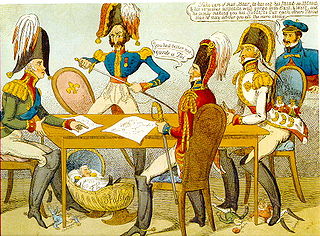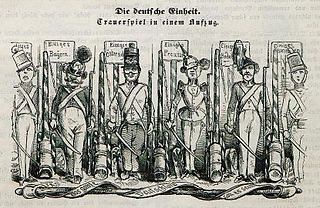 W
WMarxism and the National Question is a short work of Marxist theory written by Joseph Stalin in January 1913 while living in Vienna. First published as a pamphlet and frequently reprinted, the essay by the ethnic Georgian Stalin was regarded as a seminal contribution to Marxist analysis of the nature of nationality and helped to establish his reputation as an expert on the topic. Stalin would later become the first People's Commissar of Nationalities following the victory of the Bolshevik Party in the October Revolution of 1917.
 W
WThe Armenian question was the debate following the Congress of Berlin in 1878 as to how the Armenians in the Ottoman Empire should be treated. The term became commonplace among diplomatic circles and in the popular press. In specific terms, the Armenian question refers to the protection and the freedoms of Armenians from their neighboring communities. The "Armenian Question" explains the 40 years of Armenian-Ottoman history in the context of English, German, and Russian politics between 1877–1914. In 1915, the leadership of the Committee of Union and Progress, which controlled the Ottoman government, decided to end the Armenian Question permanently by killing and expelling most Armenians from the empire in the Armenian genocide.
 W
WThe Congress of Verona met at Verona on 20 October 1822 as part of the series of international conferences or congresses that opened with the Congress of Vienna in 1814–15, which had instituted the Concert of Europe at the close of the Napoleonic Wars.
 W
WThe Croatian question refers to a political, cultural, social and economical status of Croats in Austro-Hungary, Kingdom of Yugoslavia, SFR Yugoslavia and post-Dayton Bosnia and Herzegovina.
 W
WEnglish votes for English laws (EVEL) was a set of procedures of the House of Commons of the Parliament of the United Kingdom whereby legislation that affected only England required the support of a majority of MPs representing English constituencies. The procedures were in place between 2015 and 2020. They were developed following devolution in the United Kingdom as a result of the West Lothian question, a concern about the perceived inequity of MPs from Northern Ireland, Scotland and Wales, sitting in the House of Commons being able to vote on matters that affected only England, while MPs from England were unable to vote on matters that had been devolved to the Northern Ireland Assembly, the Scottish Parliament and the Senedd.
 W
WThe Final Solution of the Czech Question was the Nazi German plan for the complete Germanization of the Protectorate of Bohemia and Moravia. German sociologist and anthropologist Karl Valentin Müller asserted that a large part of the Czech nation was racially Aryan and could be Germanized. This was in stark contrast to Germany's Final Solution to the Jewish Question. However, Müller asserted that the Germanization should take place without coercion; instead, he suggested a system of social incentives.
 W
W"The German Question" was a debate in the 19th century, especially during the Revolutions of 1848, over the best way to achieve a unification of all or most lands inhabited by Germans. From 1815 to 1866, about 37 independent German-speaking states existed within the German Confederation. The Großdeutsche Lösung favored unifying all German-speaking peoples under one state, and was promoted by the Austrian Empire and its supporters. The Kleindeutsche Lösung sought only to unify the northern German states and did not include any part of Austria ; this proposal was favored by the Kingdom of Prussia.
 W
WThe Great Eastern Crisis of 1875–78 began in the Ottoman Empire's territories on the Balkan peninsula in 1875, with the outbreak of several uprisings and wars that resulted in the intervention of international powers, and was ended with the Treaty of Berlin in July 1878.
 W
WThe Irish Question was the issue debated primarily among the British government from the early 19th century until the 1920s of how to respond to Irish nationalism and the calls for Irish independence.
 W
WThe Kaliningrad question is a political question concerning the status of Kaliningrad Oblast as an exclave of Russia, and its isolation from the rest of the Baltic region following the 2004 enlargement of the European Union.
 W
WThe Karelian question or Karelian issue is a dispute in Finnish politics over whether to try to regain control over eastern Finnish Karelia and other territories ceded to the Soviet Union in the Winter War and the Continuation War. Despite the name "Karelian question", the term may refer also to the return of Petsamo, ceded parts of Salla and Kuusamo, and four islands in the Gulf of Finland. Sometimes the phrase "debate on the return of the ceded territories" is used. The Karelian question remains a matter of public debate rather than a political issue.
 W
WThe Assembly of Kosovo, then a province of Serbia under transitional UN administration (UNMIK), approved a declaration of independence on 17 February 2008. Kosovo was soon recognized as a sovereign state by the United States, Turkey, Albania, Austria, Germany, Italy, France, the United Kingdom, the Republic of China (Taiwan), and others. This triggered an international debate over whether Kosovo's unilateral declaration of independence had set a precedent in international law that could apply to other separatist movements, or whether it is a special case. The recognition of Kosovo's independence by 97 out of 193 UN states, according to many sources, has given fresh impetus to other separatist movements.
 W
WKurdish nationalism is a nationalist political movement which asserts that Kurds are a nation and espouses the creation of a state in Kurdistan, in opposition to the various nationalisms of the states that it is part of.
 W
WThe Mosul question was a territorial dispute in the early 20th century between Turkey and the United Kingdom over the possession of the former Ottoman Mosul Vilayet.
 W
WThe Oregon boundary dispute or the Oregon Question was a 19th-century territorial dispute over the political division of the Pacific Northwest of North America between several nations that had competing territorial and commercial aspirations over the region.
 W
WThe Oregon boundary dispute or the Oregon Question was a 19th-century territorial dispute over the political division of the Pacific Northwest of North America between several nations that had competing territorial and commercial aspirations over the region.
 W
WThe Oregon boundary dispute or the Oregon Question was a 19th-century territorial dispute over the political division of the Pacific Northwest of North America between several nations that had competing territorial and commercial aspirations over the region.
 W
WPalestinian nationalism is the national movement of the Palestinian people for self-determination in and sovereignty over Palestine. Originally formed in opposition to Zionism, Palestinian nationalism later internationalized and attached itself to other ideologies. Thus it has rejected the historic occupation of the Palestinian territories by Israel and the non-domestic Arab occupation by Egypt over the Gaza Strip and Jordanian rule over the West Bank.
 W
WThe Polish question was the issue, in international politics, of the existence of Poland as an independent state. Raised soon after the partitions of Poland in the late 18th century, it became a question current in European and American diplomacy throughout the 19th and parts of the 20th centuries. Historian Norman Davies notes that the Polish question is the primary lens through which most histories of Europe discuss the history of Poland, and was one of the most common topics of European politics for close to two centuries. The Polish question was a major topic at all major European peace conferences: at the Congress of Vienna in 1815, at the Versailles Conference in 1919, and at the Yalta Conference and the Potsdam Conference in 1945. As Piotr Wandycz writes, "What to the Poles was the Polish cause, to the outside world was the Polish question."
 W
WThe Roman Question was a dispute regarding the temporal power of the popes as rulers of a civil territory in the context of the Italian Risorgimento. It ended with the Lateran Pacts between King Victor Emmanuel III of Italy and Pope Pius XI in 1929.
 W
WThe Royal Question was a major political crisis in Belgium that lasted from 1945 to 1951, coming to a head between March and August 1950. The "question" at stake surrounded whether King Leopold III could return to the country and resume his constitutional role amid allegations that his actions during World War II had been contrary to the provisions of the Belgian Constitution. It was eventually resolved by the abdication of Leopold in favour of his son Baudouin in 1951.
 W
WThe Schleswig-Holstein Question was a complex set of diplomatic and other issues arising in the 19th century from the relations of two duchies, Schleswig and Holstein, to the Danish crown, to the German Confederation, and to each other. The British statesman Lord Palmerston is reported to have said: "Only three people have ever really understood the Schleswig-Holstein business – the Prince Consort, who is dead – a German professor, who has gone mad – and I, who have forgotten all about it."
 W
WThe West Lothian question, also known as the English question, is a political issue in the United Kingdom. It concerns the question of whether MPs from Northern Ireland, Scotland and Wales who sit in the House of Commons should be able to vote on matters that affect only England, while MPs from England are unable to vote on matters that have been devolved to the Northern Ireland Assembly, the Scottish Parliament and the Senedd. The term West Lothian question was coined by Enoch Powell MP in 1977 after Tam Dalyell, the Labour MP for the Scottish constituency of West Lothian, raised the matter repeatedly in House of Commons debates on devolution.